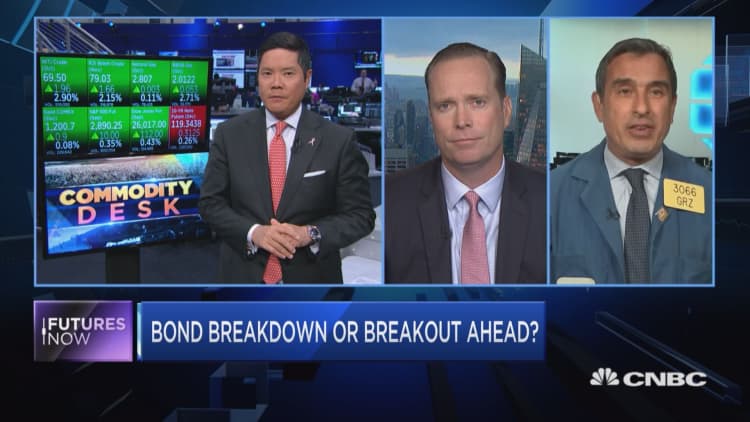The interest rate used to calculate mortgage rates is rising toward a level that could be problematic for the U.S. stock market.
The 10-year Treasury note yield traded at 2.97 percent on Tuesday, just three basis points below 3 percent. The benchmark rate has closed above the 3 percent nine times this year. Usually, the takes a leg lower after the 10-year breaks the level.
10-year yield (right axis) vs. S&P 500 (left axis) this year
Source: FactSet
Larry Benedict, CEO of The Opportunistic Trader, said this pattern of stocks falling as the 10-year breaches 3 percent could repeat itself.
"There is a huge divergence between the U.S., Asian and European equities," he said. "We think that once the 10-year hits 3 percent, that could trigger an unwinding out of U.S. equities and potentially into Europe and Asia."
The S&P 500 reached an all-time high late last month and is up 8 percent this year. Meanwhile, the Stoxx 600, which tracks European stocks, is down 3.6 percent in 2018. In Asia, the Japanese Nikkei 225 and the Shanghai Composite are both down 0.4 percent and 19.4 percent, respectively.

European and Asian equities have been pressured by increasing trade tensions around the world. The U.S. has slapped tariffs on goods from some of its biggest trade partners, including the European Union and China. Both the EU and China have retaliated with tariffs of their own. Meanwhile, U.S. stocks have been able to mostly shrug off the lingering trade fears amid strong economic data and strong gains in tech shares.
The 10-year yield has been on a tear since Friday, when the U.S. government reported that average hourly earnings grew by 2.9 percent on a year-over-year basis last month, the highest since April 2009. The data sent the 10-year up by six basis points on Friday as it signaled inflation is rising. Higher inflation increases the possibility of rate hikes.
"We saw the wage number last week and that created a bit of an inflationary scare in the market," Benedict said. "We believe if the 10-year hits 3 percent, it will be a negative for the market."
Inflation data scheduled for release later this week could also bolster the benchmark rate. The U.S. producer price index and consumer price index are set for release Wednesday and Thursday, respectively.


